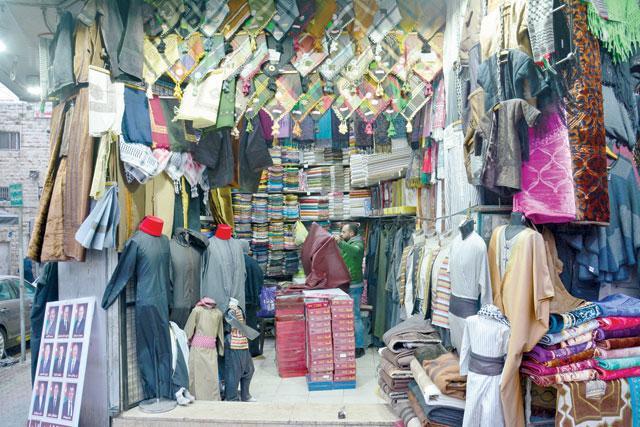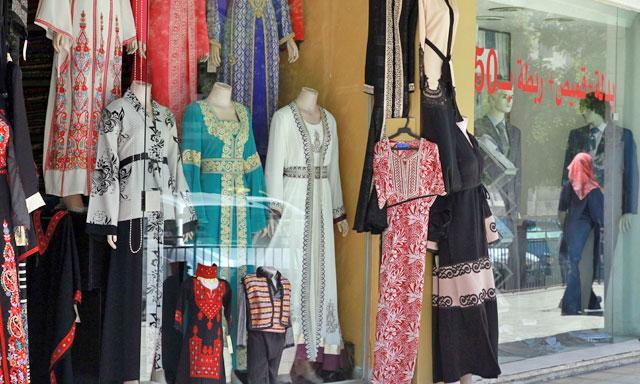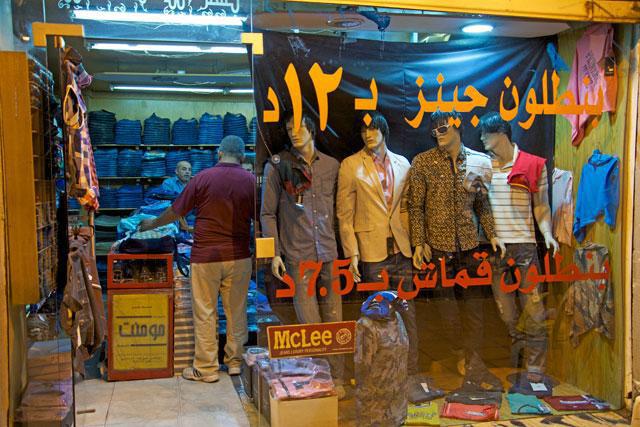You are here
Garment sector stakeholders say setting up ‘sales period’ would help organise market
By Maram Kayed - Feb 16,2019 - Last updated at Feb 16,2019
AMMAN — The garment sector, which suffered a steep drop in sales last year, is asking the Ministry of Industry, Trade and Supply to fulfil its four-year-long demand to restrict sales and discounts to a certain time of year.
President of the Textile and Readymade Clothes Syndicate Munir Deyeh said that setting a “sales period” would organise and help the sector regain its balance.
“There is a universal time for annual sales which all the countries, including our neighbours in the region, follow. That is the winter period, starting mid-January and ending mid-February; and the summer period, starting at the end of August and until October,” Deyeh said in a phone interview with The Jordan Times.
He noted that setting a period for sales is in the interest of sellers and buyers. “In Dubai, the annual shopping festival attracts hundreds of thousands of buyers from around the world because it is during a certain time of the year that people can mark on their calendar.”
“Full-year sales, as the case in Jordan, hurt the already troubled and chaotic industry,” Deyeh said.
“It discredits the sector. When you see the same sign up all year, it does not evoke any excitement as people no longer believe there are really considerable discounts. The shops that do not have these signs, on the other hand, are also affected because citizens think: ‘Why would I buy from a shop that does not have discounts when the shop next door does?’”
“We conducted studies that proved that the ever-present sales put off customers. We are not against freedom of trade but are just calling for fair competition,” Amman Chamber of Industry board member Sultan Allan said.
Allan agreed with Deyeh for restricting sales to certain periods, saying: “If we can organise the process, the average citizen can then be given a chance to save up money for sales time, as well as allow us a chance to attract tourists with advertisements for shopping festivals.”
Other problems in the sector, as stated by the syndicate’s president, is that taxes reach up to 43 per cent of an imported garment’s price, and 52 per cent of imported shoes, obstructing any “real discount in prices”.
“We want that the government at least decreases the taxes on the clothes of newborns and children so that the kids of unfortunate families can feel the joy of Eid and other occasions,” said Siwar Masri, an owner of two clothes shops.
Online shopping is also another challenge for the sector, according to Deyeh, who said that in orders received in Jordan in 2017 amount to JD42 million. “The figures for 2018 are not available yet, but we expect them to be a lot higher.”
“It is understandable that people would turn to online shopping. Aside from saving time and effort, they can also get higher quality for half the price. We cannot blame them,” said Mustafa Farraj, a worker in a clothes and shoe store.
The Ministry of Industry, Trade and Supply was not available for comment.
Related Articles
AMMAN — In 2021, the pandemic continues to take a heavy toll on the Kingdom’s clothing sector, according to Jordan's Textile and Readymade C
AMMAN – The clothing and footwear sector is “very keen” on reopening as of Sunday after more than 45 days of closure, said President of the
AMMAN — The garments, accessories and shoes sector is “relying” on eid and the remaining days of Ramadan to boost their otherwise deteriorat



















